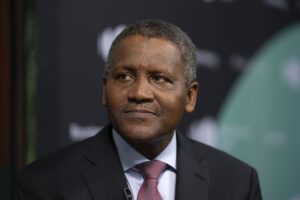Nigerians need to consume, export what they produce — Emefiele
The Central Bank of Nigeria (CBN) says Nigerians need to consume what they produce and export the surplus after adding value to it.
Emefiele said this at the 32nd Seminar organised by the Central Bank of Nigeria, for Finance Correspondents and Business Editors, on Thursday in Akure, Ondo.
The seminar theme, “Exchange Rate Management and Economic Diversification in Nigeria: The ‘PAVE’ Option.”
Emefiele’s message was delivered virtually by the Deputy Governor, Corporate Services, CBN, Mr Edward Adamu.
“I am mindful that our goals may appear ambitious to some. But I am resolute and determined that we can achieve it.
“Many countries that are much less endowed than Nigeria are doing it. Consider for example that agriculture exports alone from the Netherlands was about US$120 billion last year.
“Yet, Netherlands has a land mass of about 42,000 square kilometers, which is much smaller that the land mass of Niger State alone, at over 76,000 square kilometers,” he said.
Emefiele said the Produce, Add Value and Export (PAVE) initiative was expected to make Nigerians consume what they produce, add value to it, and even export the surplus.
He said that PAVE was an initiative akin to South-East Asia’s much referenced export-led industrialisation policy which changed the economic fortunes of countries such as South Korea, Taiwan, Malaysia and Singapore.
Emefiele said the initiative was designed to be the key for fast-tracking a bucket of substitutes to Crude oil export.
According to him, It encourages backward integration for the local production of select items.
The apex bank governor urged all hands to ensure the success of PAVE, noting that “the initiative would mitigate against future severe consequences of shocks beyond our control”.
He said, “COVID-19 pandemic is one of the biggest crises that has faced mankind in recent history.
“The pandemic impacted economies, and disrupted business activities globally.
“Expectedly, Nigeria like most commodity-dependent countries was not spared the deleterious impact of the pandemic, given our dependence on crude oil export as a major source of revenue and foreign exchange.”
He said despite the headwinds associated with the pandemic, the bank would continue to work very hard to ensure that Nigeria remained a vibrant economy.
According to him, it should remain vibrant with a diversified mix of opportunities across sectors such as ICT, Manufacturing, Solid Minerals, Trade and Agriculture.
He said that notwithstanding the modest achievements, the bank would not rest on its oars, as the work was far from over.




